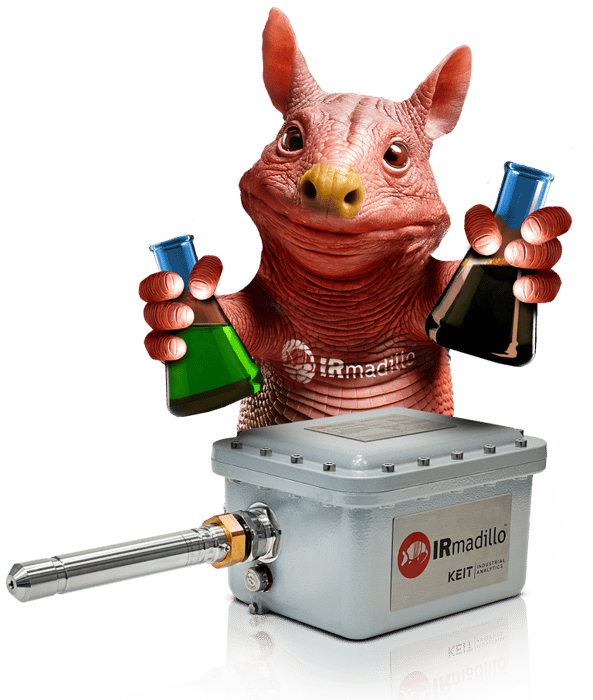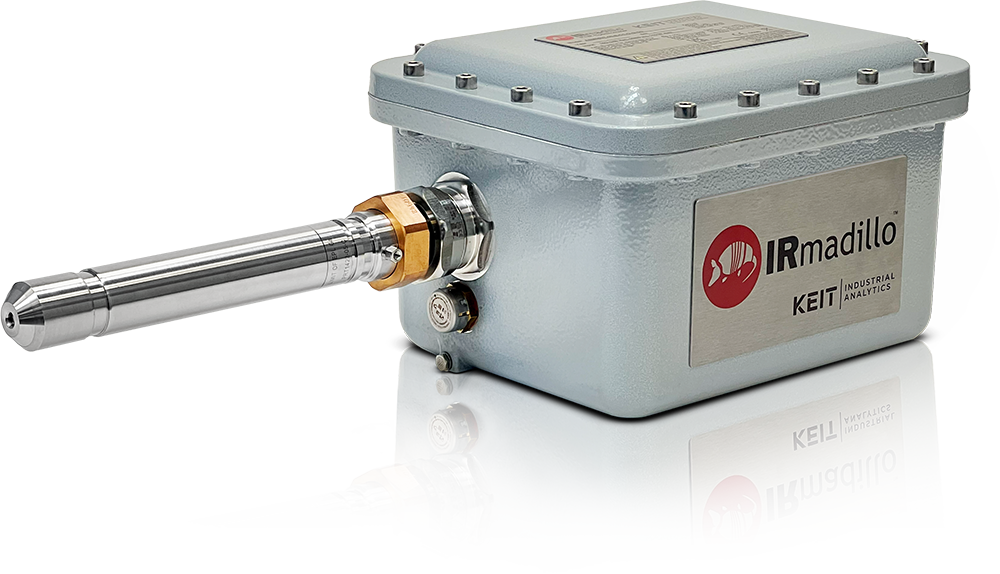The IRmadillo in Pulp and Paper Manufacturing

Described by a client as "the auto-titration killer", IRmadillo is the exciting new way to get continuous, in-depth chemical concentration data from within your processes.
With real-time control, you can maximize efficiency: enhancing chemical recovery, saving energy and increasing throughput.
IRmadillo is installed directly in-line in process pipework and vessels and can be connected to your DCS. Specifically designed to cope with harsh, unforgiving, caustic environments, it is the ideal tool for use in the pulp and paper manufacturing industries.
Where can you use IRmadillo?
IRmadillo works regardless of the pulping process used (e.g. Kraft or sulfite processes). In a typical process such as that shown below, there are several points of measurement where IRmadillo can provide vital information in real-time.
IRmadillo [is] stable, robust, precise and well suited for industrial on-line applications
Senior Development Engineer International Forest Products Company
What can IRmadillo measure?

- Reduction Efficiency
-
Residual Effective Alkali
-
Effective Alkali
-
Active Alkali
-
Tall Oil and Tall Oil Soaps
-
Black Liquor Chemical Composition
-
Total Titratable Alkali
-
Wet Strength Additives
Why use IRmadillo?
IRmadillo acts as a concentration meter for a whole range of different chemicals, simultaneously. It analyzes the entire mixture, whether a clean and clear liquid, an emulsion, or a thick and dirty slurry.
Different calibrations can then be loaded onto the system, to show the concentrations of chemicals of interest – as many chemicals as you need.
Tough, rugged, reliable. Whatever the environment.

So many possible applications:
Recausticizing: the IRmadillo can be installed into green liquor pipework enabling feed-forward control for the recausticizing process. It can measure the concentration of both sodium sulphide (Na2S) and sodium carbonate (Na2CO3) in order to reduce variability in TTA (Total Titratable Alkali) which in turn allows improved causticizing control. The IRmadillo can also be installed after the causticizers in the white liquor to measure the overall causticizing efficiency, which in turn can be used to calculate how much lime is required to causticize back to sodium hydroxide (NaOH). Stabilizing the operation of the recausticizing process through better control can significantly improve the efficiency of the mill, particularly by reducing carbonate 'deadload' and hence saving energy.
Digester and Recovery Boiler Optimisation: by measuring residual effective alkali in the black liquor you can get feedback on the digester performance, optimise the 'alkali-to-wood' charge and also ensure problematic lignin precipitation in the evaporators is avoided. Tall oil soap is usually a valuable byproduct which is recovered from the black liquor and hence its measurement by IRmadillo can have a significant impact on mill efficiency. Excess tall oil also causes evaporator fouling, reduces evaporator efficiency, and reduces recovery boiler reduction efficiency. Installing IRmadillo into the white liquor stream feeding the digesters allows measurement of the effective alkali content and hence ensure the correct quantity is charged to the digesters.
Paper production: the IRmadillo can also give real-time measurement of chemicals present in the white water chest, such as residual wet strength chemicals, and other chemical additives needed to achieve specific product characteristics. The IRmadillo can also perform a qualitative measurement at the same time, looking for potential build-up of organic residue such as inks and glues from recycled paper, identifying problem early enough to prevent process shutdown.
How does the IRmadillo cope with caustic spray, scale build-up and other hazards?
Originally designed to be used on Mars, the IRmadillo is built for harsh and challenging environments. It can be installed near pumps, on manufacturing floors, and in places with changing ambient conditions.
IRmadillo uses an attenuated total reflectance (ATR) probe. Although it is extremely tolerant of the physical composition in the analyte of interest, it can be susceptible to scale build-up on the end of the probe. The IR-jet cleaner can be installed to pressure-wash the probe as required.
The IRmadillo probe can even clean itself

I’m interested. What’s next?
We give you options to make it easy to start using an IRmadillo.
Whatever you choose, we’ll help you install, train your team, and can even calibrate a chemometric model.
Trial Rental
Why not try one out? We can provide an IRmadillo suited to your particular operating environment and bill you monthly for an agreed period.
Easy to renew, you have control over how long you keep it - from a few months to an even longer rent-to-own plan.
Purchase
Own your IRmadillo outright to monitor your processes on-line and in real time as you see fit.
Begin your discussion today to find out how you can get an IRmadillo installed into your system.
